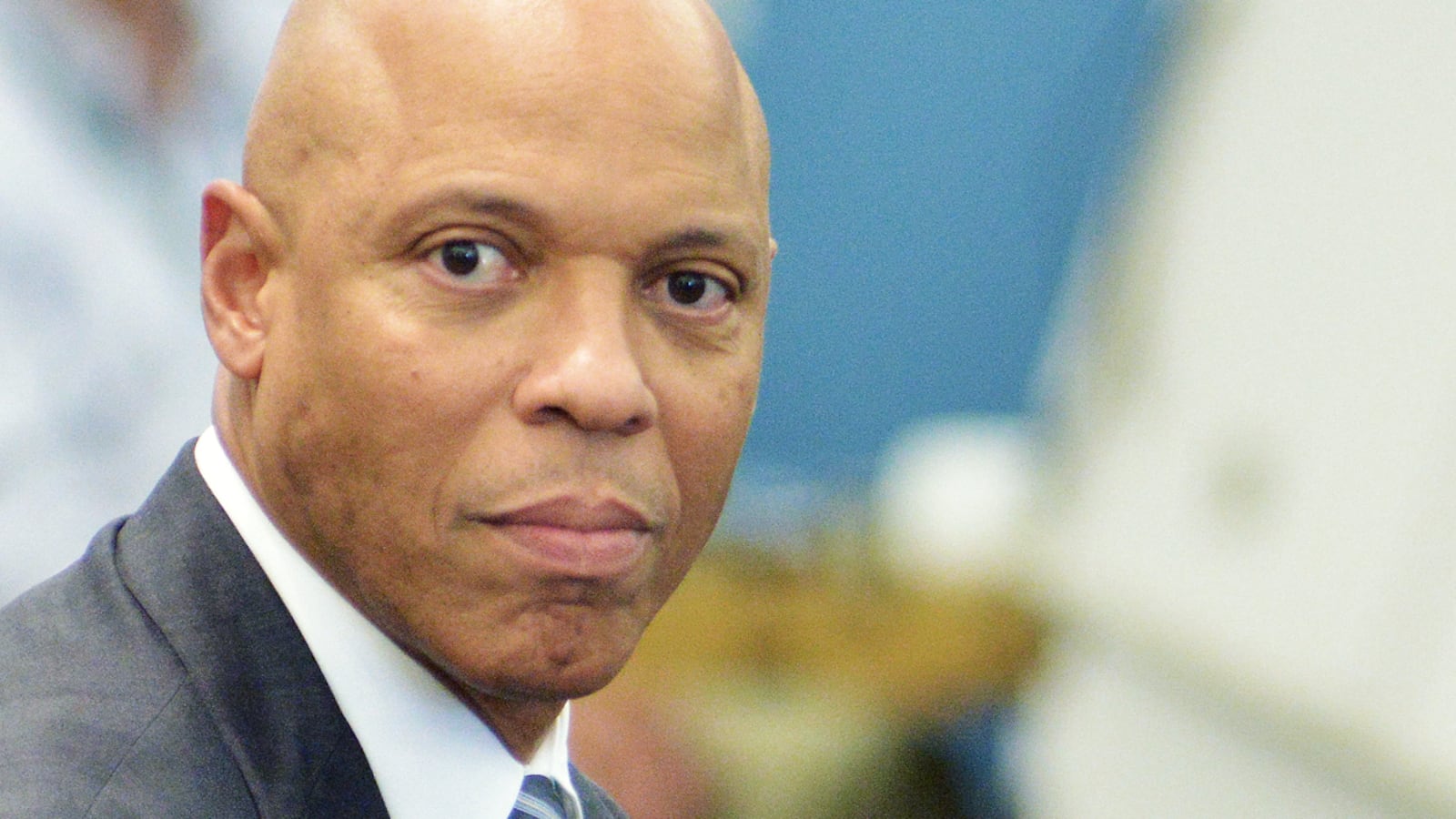This article was originally published in The Notebook. In August 2020, The Notebook became Chalkbeat Philadelphia.
by Benjamin Herold for the Notebook and WHYY/Newsworks
New Philadelphia Superintendent William Hite says that he will not reconsider the direction and reform strategies set forth by the School Reform Commission, maintaining that “some of those things have already left the station.”
Listen to excerpts of reporter Benjamin Herold’s interview with Dr. Hite.
An edited transcript of the interview is now available.
In an extensive interview with the Notebook/NewsWorks Tuesday, Hite made clear that the endgame of his yet-to-begin tenure as Philadelphia’s schools chief has already been established: a relentlessly efficient District that has more high quality school options and more students who are engaged in their own learning.
In trying to make that vision a reality, said Hite, he won’t be afraid to push for more state money, work together with labor unions, or listen to the public. But his charge, Hite maintained, is not to develop a new reform plan, but to figure out how existing efforts to slash costs, close schools, expand charters and move to a decentralized “portfolio” of schools can best fit together.
“There needs to be a comprehensive understanding of many of the plans that are in place right now, and the expected outcomes of those plans, and the degree to which they are integrated.” said the 51-year old former teacher and principal.
“The last thing the District needs right now is a lot of new actions and a lot of new initiatives.”
On Friday, the SRC announced that it would hire Hite, a self-described “servant leader” whose thoughtful style and commitment to listening won over wide swaths of Philadelphia during a whirlwind – some say rushed and unnecessarily secretive – public vetting process last week.
There’s still no word on when Hite will formally take the helm of Philadelphia’s troubled School District, however. At the moment, he is still negotiating his exit from his current post as superintendent in Prince George’s Country, Md., where several schools were still without power Tuesday following harsh weather over the weekend.
But Hite said that he’s already begun poring over the District’s books, and he’s also coming to town next week to meet with the SRC. The goal is to begin figuring out how to close a $50 million hole that opened up in the District’s budget for next school year after City Council voted recently to provide the District with less than half of the $94 million in tax revenue that the SRC had been counting on.
“It’s really bad,” said Hite of the District’s budget predicament.
“When you cannot depend on forecasting an amount that is set in stone, that’s problematic.”
Tough choices about further cuts will have to be made right away, he said, and big, controversial decisions on issues like school closings may have to be accelerated.
Once the case can be made that the District is operating efficiently, said Hite, there will also need to be an effort to get more funding from Harrisburg.
“I think you have to push for more state money,” he said. “You have to push for more money from every place you can.”
That should come as a ray of hope for parents, advocates and members of Council, many of whom grew frustrated after months of unsuccessfully imploring the SRC to publicly demand that Gov. Corbett restore some of the more than $1 billion in state cuts to public education over the past two years.
Just this May, Hite joined leaders from two other large Maryland school districts in a successful campaign to roll back a huge state cut that would have disproportionately impacted districts serving high percentages of poor and minority students and English Language Learners.
“It was really important to us to send a clear message to not just the governor, but all the legislators around the state of Maryland about how significant a cut that would be for our system,” he said.
Such examples fit in with Hite’s description of himself as a leader who always seeks to engage others, but who isn’t scared off by potential controversy.
Even during tough labor negotiations in Prince George’s County, said Hite, he has sought to maintain a respectful dialogue. Despite presiding over hundreds of millions of dollars in budget cuts, thousands of layoffs, and three years without employee raises, Hite’s departure was greeted with sadness by the Prince George’s County teachers’ union.
“We involved them at almost every level,” Hite explained.
“The best way I know how to do that is to sit down and have honest and forthright conversations.”
Hite is also looking for engagement inside the classroom. That means rigorous academic content and plenty of extracurriculars for all students, as well as ample “opportunities to problem solve, think critically, work collaboratively, and communicate as much as they can,” he said.
Part of his leadership style can be attributed to his upbringing in Virginia, said Hite. His mother and father “had strong beliefs around respect and making sure that we do unto others as we want them to do unto us.”
Hite is confident that his style will work fine in Philadelphia, but acknowledged that he will face a steep learning curve as a newcomer to the rough-and-tumble world of Philadelphia school reform.
One lesson, however, the city’s new superintendent has already learned.
A former college football player and lifelong fan of the NFL’s Washington Redskins, Hite was asked how long it might be before he starts rooting for the Philadelphia Eagles.
“Naturally, I am [an Eagles quarterback] Michael Vick fan, being from Virginia Tech,” responded Hite.
“So probably not long.”


